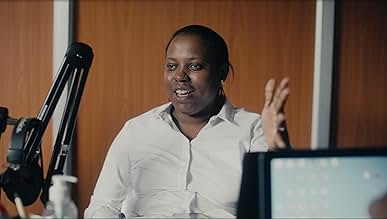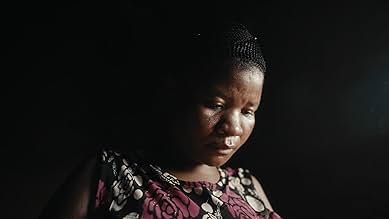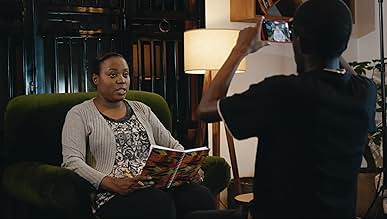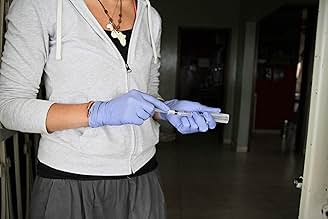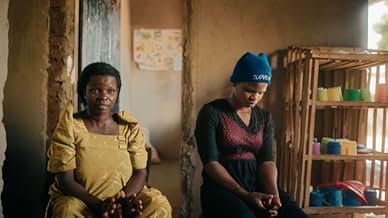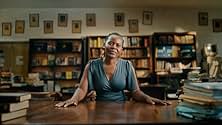Renée Bach était une jeune missionnaire américaine qui a créé une association caritative pour les enfants souffrant de malnutrition à Jinja, en Ouganda. Mais des allégations choquantes ont é... Tout lireRenée Bach était une jeune missionnaire américaine qui a créé une association caritative pour les enfants souffrant de malnutrition à Jinja, en Ouganda. Mais des allégations choquantes ont été formulées.Renée Bach était une jeune missionnaire américaine qui a créé une association caritative pour les enfants souffrant de malnutrition à Jinja, en Ouganda. Mais des allégations choquantes ont été formulées.
Parcourir les épisodes
Avis à la une
So let me get this straight. Put this into the context of a western hospital. Maybe it's in the USA, maybe it's in Germany (ha-ha, get it). Would you allow a random person with no medical credentials to treat your child as if they had a medical degree? Just because someone is poor, doesn't have access to food or clean water, doesn't mean they don't deserve the best of, or just ADEQUATE care. If you were to provide FOOD and food only, maybe some "community care/support" (whatever that means), then why would there be so many complaints in the matter of years and years?
This documentary for me is not objective enough to put into doubt how big of a threat christian missionaries are in the third world they created. As we see from other reviews even, it only furthers to support the white savior complex.
When you watch a documentary about a serial killer, how often is their point of view displayed as valid and sympathetic?
Didn't you christians invent that saying - the road to hell is paved with good intentions?
No amount of good intentions excuses toying with child lives. I'm sure there's plenty of homeless, hungry, in need of help children in the USA, but it's easier to endanger ones in countries with less laws and general influence in the political world.
This documentary could've been so much more. To expose the inequality in possessing a US passport, US currency, rather than an African one. The voice of an African mother losing her child, rather than an United States one (and I don't say american on purpose, America is a continent and you are not as exceptional as you'd like to imagine).
Documentary superficial at best.
If you are neutral in situations of injustice, you have chosen the side of the oppressor
If you are neutral in s.
This documentary for me is not objective enough to put into doubt how big of a threat christian missionaries are in the third world they created. As we see from other reviews even, it only furthers to support the white savior complex.
When you watch a documentary about a serial killer, how often is their point of view displayed as valid and sympathetic?
Didn't you christians invent that saying - the road to hell is paved with good intentions?
No amount of good intentions excuses toying with child lives. I'm sure there's plenty of homeless, hungry, in need of help children in the USA, but it's easier to endanger ones in countries with less laws and general influence in the political world.
This documentary could've been so much more. To expose the inequality in possessing a US passport, US currency, rather than an African one. The voice of an African mother losing her child, rather than an United States one (and I don't say american on purpose, America is a continent and you are not as exceptional as you'd like to imagine).
Documentary superficial at best.
If you are neutral in situations of injustice, you have chosen the side of the oppressor
If you are neutral in s.
Watched it, I was expecting something different but what I saw was the same thing we see in America every day. White women tearing other white women down for their own gain. If you have to turn someone else's light out to shine, you don't deserve to have a light. There are morals and then there are decisions made for personal reasons. I will not be supporting any causes made to the Uganda moving forward. If I wanted white women tearing white women down, I could view that in my local church. I am a white woman by the way, Im just tired of it. I would not spend a single dollar to support her predecessors.
It's easy to sit and judge from your comfy American couch, but even when they we're criticizing her, I saw a woman trying to do good. Was it perfect, no. Do I think the documentary gave us the whole truth, no. I very much dislike the nurse, way more than the one who was at least making every attempt.
It's easy to sit and judge from your comfy American couch, but even when they we're criticizing her, I saw a woman trying to do good. Was it perfect, no. Do I think the documentary gave us the whole truth, no. I very much dislike the nurse, way more than the one who was at least making every attempt.
Having read the existing reviews, I assumed that this was a story that had been told over and over again - Young white girls are feeling better by visiting Africa. *This is bad*.
And yes, it is, but it has delved into this issue a lot deeper than I expected from a product of the current USA culture wars.
These three episodes attempt (which is more than can be said for a lot of documentaries) to explain its subjects from a number of points of view.
Yes, it is about Africa, and it (without my personal experience) seems to represent its reality, and the reality of the people who live and work there reasonably well.
Yes, it's about US Christianity, and (maybe) presents the (in fairness) admirable traits that drive these missionaries to go to these countries that they have literally no clue about, other than the certain knowledge that the countries are in trouble and need help.
But what are these unspecial, unskilled, people really supposed to be doing (other than evangelising) in a country they know (literally) less than nothing about?
Yes, it is about how countries and cultures view each other (in general terms). If that doesn't interest you, skip it. If you appreciate that we live in an unequal world, but also that we are all humans dealing with global problems, then it is worth a watch (IMHO)
And yes, it is, but it has delved into this issue a lot deeper than I expected from a product of the current USA culture wars.
These three episodes attempt (which is more than can be said for a lot of documentaries) to explain its subjects from a number of points of view.
Yes, it is about Africa, and it (without my personal experience) seems to represent its reality, and the reality of the people who live and work there reasonably well.
Yes, it's about US Christianity, and (maybe) presents the (in fairness) admirable traits that drive these missionaries to go to these countries that they have literally no clue about, other than the certain knowledge that the countries are in trouble and need help.
But what are these unspecial, unskilled, people really supposed to be doing (other than evangelising) in a country they know (literally) less than nothing about?
Yes, it is about how countries and cultures view each other (in general terms). If that doesn't interest you, skip it. If you appreciate that we live in an unequal world, but also that we are all humans dealing with global problems, then it is worth a watch (IMHO)
As Episode 1 of "Savior Complex" (2023 release; 3 episodes of about an hour each) opens, we are in Bedford, VA and get to know Renee Bach, a woman in her early 30s who laments she cannot go back to Uganda for reasons that will be revealed soon. Bach grew up in a remote small white Christian community in rural Virginia, and with encouragement from people around her, she decides that her future lies in doing missionary work in Uganda, working with small children that are malnourished if not worse. What could go wrong? At this point we are 10 minutes into Episode 1.
Couple of comments: this is the feature length debut of Jackie Jesko (well known for her work on the hard-hitting news show "Vice"). Here she assesses how it is that a woman in her mid-20s with no medical background or training whatsoever ends up in essence running a medical care facility in Uganda. In the bigger picture, the series also examines the cotton industry that is Christian missionaries all over the world, eager to "help" locals, even though these missionaries aren't in any way qualified, prepared or trained for what they are there for. It feels like colonialism all over again (in the very same way the Catholic church sent out missionaries around the globe in the 16th to 19th century). Beware: there is a fair amount of footage of small children with various ailments that isn't for the faint of heart and that will also break your heart. These 3 episodes just flew by and I found this to be riveting from start to finish.
"Savior Complex" premiered on HBO 2 weeks ago and is also streaming on Max, where I caught it the other night. If you have any interest in the pros and cons of Christian missionary work around the world, I'd readily suggest you check this out, and draw your own conclusion.
Couple of comments: this is the feature length debut of Jackie Jesko (well known for her work on the hard-hitting news show "Vice"). Here she assesses how it is that a woman in her mid-20s with no medical background or training whatsoever ends up in essence running a medical care facility in Uganda. In the bigger picture, the series also examines the cotton industry that is Christian missionaries all over the world, eager to "help" locals, even though these missionaries aren't in any way qualified, prepared or trained for what they are there for. It feels like colonialism all over again (in the very same way the Catholic church sent out missionaries around the globe in the 16th to 19th century). Beware: there is a fair amount of footage of small children with various ailments that isn't for the faint of heart and that will also break your heart. These 3 episodes just flew by and I found this to be riveting from start to finish.
"Savior Complex" premiered on HBO 2 weeks ago and is also streaming on Max, where I caught it the other night. If you have any interest in the pros and cons of Christian missionary work around the world, I'd readily suggest you check this out, and draw your own conclusion.
This documentary is very informative, but not in the way the producers intended.
Most white people would see it and think that they should do better, but instead of listening, they should just watch, understand that you never help and always making a bad situation worse.
Never work against nature, never push the scale of evolution, you are just creating an unbalance with an impact beyond your life and ego.
Africa was in a perfect balance before white aid took hold. Misplaced altruism is always pathological, when you ignore your own tribe, what happens next to you, and go to help people on a different continent, you can be sure you are doing harm.
Most white people would see it and think that they should do better, but instead of listening, they should just watch, understand that you never help and always making a bad situation worse.
Never work against nature, never push the scale of evolution, you are just creating an unbalance with an impact beyond your life and ego.
Africa was in a perfect balance before white aid took hold. Misplaced altruism is always pathological, when you ignore your own tribe, what happens next to you, and go to help people on a different continent, you can be sure you are doing harm.
Meilleurs choix
Connectez-vous pour évaluer et suivre la liste de favoris afin de recevoir des recommandations personnalisées
Détails
- Couleur
Contribuer à cette page
Suggérer une modification ou ajouter du contenu manquant

Lacune principale
By what name was Savior Complex (2023) officially released in India in English?
Répondre

